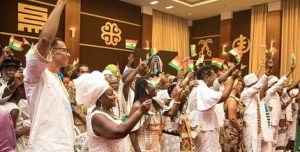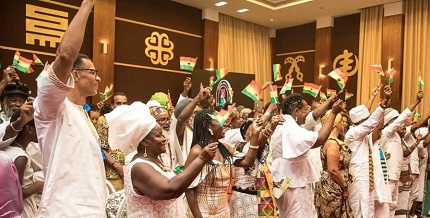Keachia Bowers and Damon Smith used to live in Florida.
But in 2023, they left everything behind and moved to Ghana.
There, among a growing number of returnees like them, they feel like they belong.
“I am an African woman, just because how do we identify who we are? You look at your skin. So I didn’t need (citizenship) to tell me that I’m African. Anywhere I go in the world, and someone looks at me, I’m melanated,” said Bowers.

Together with another 522 members of the global Black diaspora, Bowers and Smith received Ghanaian citizenship in a ceremony in November.
“But my ancestors who wanted to return and come back home—those ancestors who never made it back—their dying wish was to come back to their home, and they never made it. That passport, for me, is for them,” Bowers continued.
The Ghanaian government has been encouraging the reconnection with its diaspora through a programme called Beyond the Return, which it launched in 2019.
That year, Ghana remembered the 400-year anniversary since African slaves were first brought to the US. Ghana was one of the main points of departure for the transatlantic slave trade.
Beyond the Return is foremost an economic programme, aiming to attract investment from the diaspora, but for many others with similar histories to Bowers and her family, reconnecting to their roots remains a key motivation.
Dejiha Gordon, another US-Ghanaian citizen who moved to Ghana in 2019 and since opened a food truck for Jamaican food, agrees.
“It just feels good to be, to have a connection to an African country as an African-American, as a Black American, right? Because back in America, we don’t have anything to trace our roots to but Africa. And to have that connection here, I feel like I’ve done something right,” she said.




